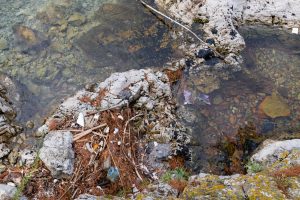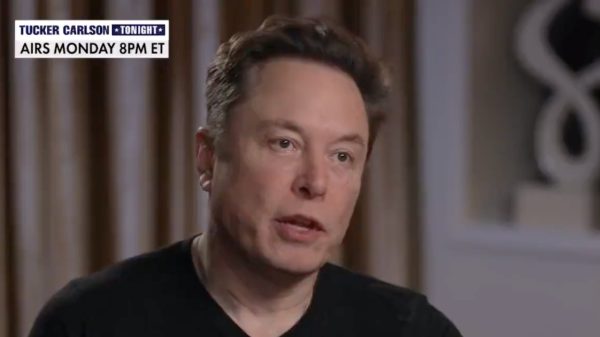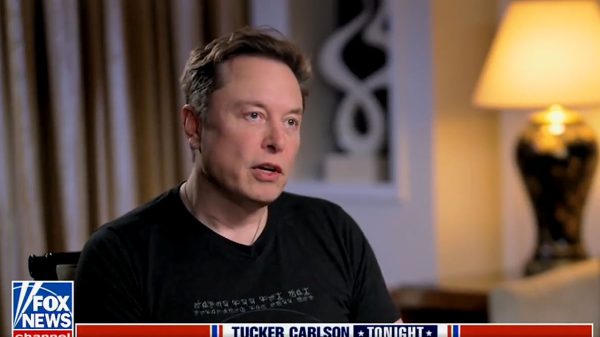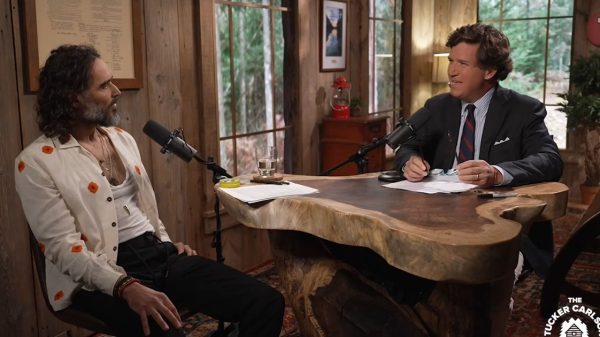Way back in 2002, Secretary of Defence Donald Rumsfeld made what was surely his most famous – or perhaps infamous – contribution to epistemology. The Bush administration was trying to build the case for war with Iraq, but it had hit a snag, a big one: there was absolutely no evidence of links between Saddam Hussein’s Iraq and the arming of international terrorist groups with weapons of mass destruction. Nada. Zip. Challenged on the matter at a White House press conference, Rumsfeld said the following:
“Reports that say that something hasn’t happened are always interesting to me, because as we know, there are known knowns; there are things we know we know. We also know there are known unknowns; that is to say we know there are some things we do not know. But there are also unknown unknowns—the ones we don’t know we don’t know. And if one looks throughout the history of our country and other free countries, it is the latter category that tends to be the difficult ones.”
Rumsfeld’s response was seized upon as a classic piece of political obfuscation. He was roundly mocked in the liberal media and even awarded the 2003 “Foot in Mouth” award by the British Plain English Campaign.
With the passage of years and now decades, the “known unknowns” speech has taken on a more meaningful significance, as the vacuous epitome of all the lies, misrepresentations and euphemising – remember “enhanced interrogation”? – of the George W. Bush presidency and the Global War on Terror.
‘…there are known knowns; there are things we know we know. We also know there are known unknowns;…there are some things we do not know. But there are also unknown unknowns—the ones we don’t know we don’t know.’
— U.S. Secretary of Defense Donald Rumsfeld (February 12, 2002) pic.twitter.com/FZNHgV16Ec
— RetroNewsNow (@RetroNewsNow) February 12, 2023
Viewed with a little dispassion, Rumsfeld’s basic point – there are degrees of ignorance, and they can pose wildly different risks in any given situation – is clearly far from vacuous. You might even call it wise. I certainly would. The terms “known unknowns” and “unknown unknowns” actually have a much longer history of usage in the American intelligence community and NASA that dates back to the mid-1950s, as well as being widely used in strategic-planning and risk-management circles long before Rumsfeld ever spoke them in public. “Known unknowns” even appeared in a 1982 article in the New Yorker, a favourite publication of the liberal commentariat.
But what does this have to do with anything? Well, I started thinking about known unknowns and unknown unknowns when I read about a new database called “The Plastic Health Map”, which has been created by the Minderoo Foundation to address an urgent need at the very centre of scientific research into the health effects of plastics. Since the 1960s at least, there have been many thousands of studies of the damage plastics cause to animals and humans, but nobody had ever thought to catalogue them, let alone make it possible to compare their findings to create a comprehensive profile of the risks. The initial problem, then, was one of known unknowns.
The Plastic Health Map database contains the findings of 3,500 studies on plastic chemicals published between 1961 and 2022. What’s more, it allows complex cross-referencing on the basis of a number of different study variables, such as type of chemical, health effects, the age of the research subjects and the year of publication.
THE PLASTIC HEAT MAP.
The Minderoo Foundation has just released an invaluable resource for anybody who wants to understand more about plastics and their effects on human health: an open-access database of 3.5k studies on plastic chemicals published from 1961-2022. 👇 pic.twitter.com/ZBPxxji2w0
— RAW EGG NATIONALIST (@Babygravy9) November 1, 2023
The researchers weren’t able to look at every single study of every single plastic chemical there is. That would have proven an almost impossible task. Experts believe there may be as many as 13,000 chemicals involved in the manufacture of plastics, so a subset of these chemicals, around 1,500 of them, was used. The chemicals chosen included familiar ones like bisphenols, PFAS, flame retardants, and phthalates, as well as others that are much less well known.
Even with this smaller subset of chemicals, it quickly became clear to the researchers just how stunningly ignorant we are of the health effects of plastic chemicals. Although the researchers found nearly 3,500 relevant studies, these accounted for just 30% of the total number of chemicals sampled. Seventy percent of the chemicals had no known safety data at all. That’s more known unknowns. Lots of them.
I’ve written at length about the insanity of how chemicals are regulated across the globe, and why it needs to change, urgently. The general logic of regulation is “safe until proven otherwise”. This means that vast numbers of chemicals, and not just plastic chemicals, are simply assumed to be harmless until, say, children start being born with flippers instead of limbs, as in the terrible case of thalidomide in the 1960s.

Microplastics in the remote Azores, near Portugal (Race For Water / Wikimedia Commons)
It’s worth remembering that more subtle effects can be just as harmful, especially when entire populations are exposed to them. A 1% decrease in sperm counts or testosterone per annum, for example, becomes a reproductive catastrophe in a matter of decades, as we’re seeing.
But of course, even when clear evidence of harm does begin to emerge, that doesn’t necessarily mean a chemical will be more closely regulated or even banned. We’re talking about money, after all – lots of it. And if the evidence has been gathered by the companies that manufacture the chemicals, they may try to hide it to protect their bottom line. Recently it was revealed that 3M and DuPont, two of the principal manufacturers of per- and polyfluoroalkyl substances, otherwise known as PFAS, withheld internal safety data from regulators for decades. Although these chemical giants knew, as early as the 1960s, that PFAS were highly toxic, even fatal, to animals and humans, the toxicity of these chemicals was not established in public, by the scientific community, until the 1990s. By that point they were, quite literally, everywhere and they still are, contaminating the environment and causing unbelievable damage. 3M and DuPont are now tied up in massive lawsuits that could destroy them both. Good riddance, I say.
The problems don’t end there. “Safe until proven otherwise” also leads to a ridiculous situation where, even if harmful chemicals are banned, replacements can easily be brought in that are just as toxic if not worse. The Plastic Health Map shows that there are very few studies of these supposedly “safe” replacement chemicals, but the minority that have been investigated are harmful too. As if it’s not bad enough, for example, that bisphenol-S (BPS) is just as estrogenic and obesogenic as bisphenol-A (BPA), the chemical it was made to replace, it’s also 100 times more bioavailable (i.e., usable) within the body and significantly more persistent. Beware: when you buy health-conscious “BPA-free” plastics, they probably contain BPS instead.
The researchers behind The Plastic Health Map are totally right:
“The current ad hoc risk assessment approach is not sufficient to protect human health, and there is a pressing need for a paradigm shift whereby new plastic-associated chemicals are rigorously tested for safety before being introduced in consumer products, with ongoing monitoring of human exposure levels and health impacts post-introduction.”
The Plastic Health Map reveals other significant gaps in our knowledge: even more known unknowns. We know relatively little about the effects of human exposure to plastics themselves, whether in macro or micro form, despite a wealth of animal studies, and there are geographical, age and sex gaps in the literature too. We know most about the effects of harmful plastic chemicals on the residents of wealthy countries and the young, and while there are studies about the effects of maternal exposure to plastic chemicals on children, and of combined maternal and paternal exposure, there isn’t a single study of the effects of paternal exposure alone. All these gaps will need to be filled.

Microplastics in Mljet National Park in Croatia (dronepicr / Flickr)
This new database will prove an invaluable resource in the coming years for researchers and especially campaigners and lawmakers who want to see greater regulation of plastic chemicals. It will also serve as a shining monument to our hubris, which may yet bring our species to an end if it is not arrested soon. The project demonstrates, beyond a shadow of a doubt, that our knowledge of our lack of knowledge about plastics and their effects far outweighs what we do know, and that this is our own stupid fault.
This is disquieting enough in itself, but there’s more. Every single known known was once a known unknown was once an unknown unknown. Nobody in the 1940s and 1950s could have anticipated the wide-ranging, even species-threatening, negative effects of plastics and the chemicals involved in their manufacture. Nobody could have foreseen that, within less than a century, these new miracle products would be implicated in an explosion of virtually every chronic disease you could think of, and in a global reproductive crisis that might see mankind unable to reproduce by natural means as early as 2045 if current trends continue.
Which of course begs the question: What else is out there harming us that we don’t even know we don’t know about? And when – if – we do find out about it or them, will it already be too late?
This op-ed features opinion and analysis from Raw Egg Nationalist, the popular health and fitness author recently profiled in the Tucker Carlson Originals documentary, “The End of Men“. His book, The Eggs Benedict Option, is available on his website and from popular book sellers, and his magazine, Man’s World, is available online.
Editor’s Note: This article was originally published November 16, 2023 and updated on June 21, 2024, to correct the name of The Plastic Health Map.




































